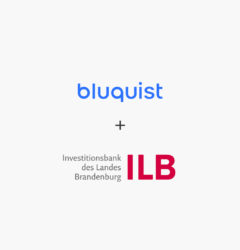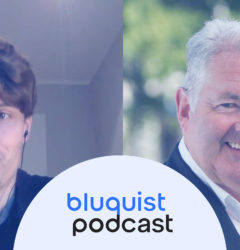- Software
Assessment hub
All your assessments inone place
360 reviews
Personal, customizable,scalable
Talent analytics
Potential-based people development
Role management
Intelligent roles and career paths
Team dynamics
Lead peoplestrengths-based
Recruiting
Match talent to skill, culture and team fit
Health & prevention
Boost wellbeing & resilience in the organization
Product updates
Discover new product features
Support
Our support team is happy to help you
bluquist evo
Your personal human potential assistant

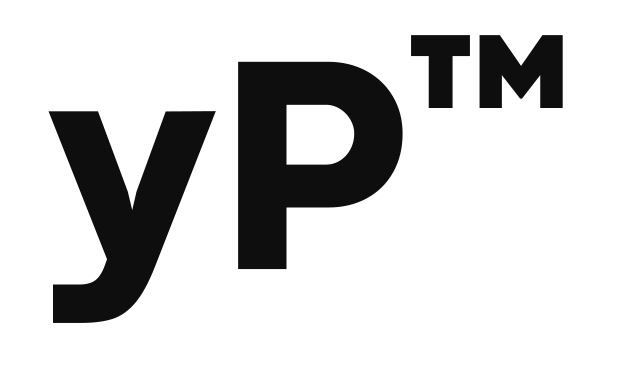


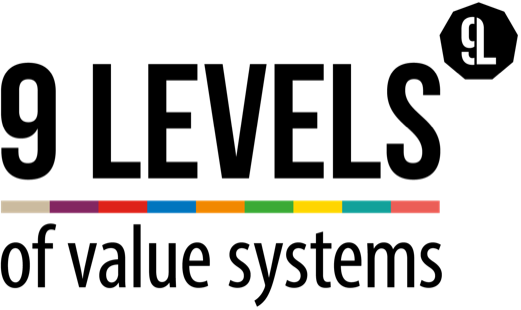

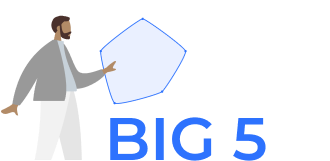

Our enterprise-ready assessments & business integrations.
Talk to us for custom HRM integrations! - Expertise
Expert services
Complementary psychometric & consulting services
Research & knowledge
Comprehensive industry insights
Technologies
Our set of core technologies
- Company
- |
- Pricing
- Contact
-
 EN
EN
29 Jan

Three traps for organizations – and one way out
How many organizations can say about themselves that they really know themselves? That they really know and understand their personalities, strengths, values and preferences?
Numerous organizations don’t really know themselves. This has become clear to us in talking to many HR managers. This is primarily because employees don’t know themselves well enough. And if individuals don’t get to know each other, no real self-awareness process is possible at the team and organizational level either.
We call these organizations sleeping organizations.
A number of problems arise for organizations from this state of not knowing themselves:
- Goal-oriented actions, e.g., well-founded development of employees or meaningful and sustainable changes in structures and processes are hardly possible.
- And when action is taken, it is often based on ignorance. Or, what is often even worse, they are based on assumptions based on individual perception filters of people in positions of responsibility.
Intermediate conclusion: organizations that do not know each other can run into difficulties in deploying employees properly, developing them and realizing their full human potential, letting them flourish. This affects productivity, speed, leads to a permanent reduction in well-being, and ultimately costs a lot of money.
But there is a way out!
For this we define two basic influencing factors, which are crucial for success in such a situation:
- Self-awareness means self-perception, being aware of one’s self, self-knowledge. For the organizational context, this means that each individual should know himself or herself. Based on this, teams and organizations can get to know each other. It is too short-sighted to encourage only the leaders to do this.
- Mindful actions means: actions and changes aimed at improving “life” in organizations, e. g. through new assignment of tasks and responsibilities, through new employees, changed teams or personnel decisions.
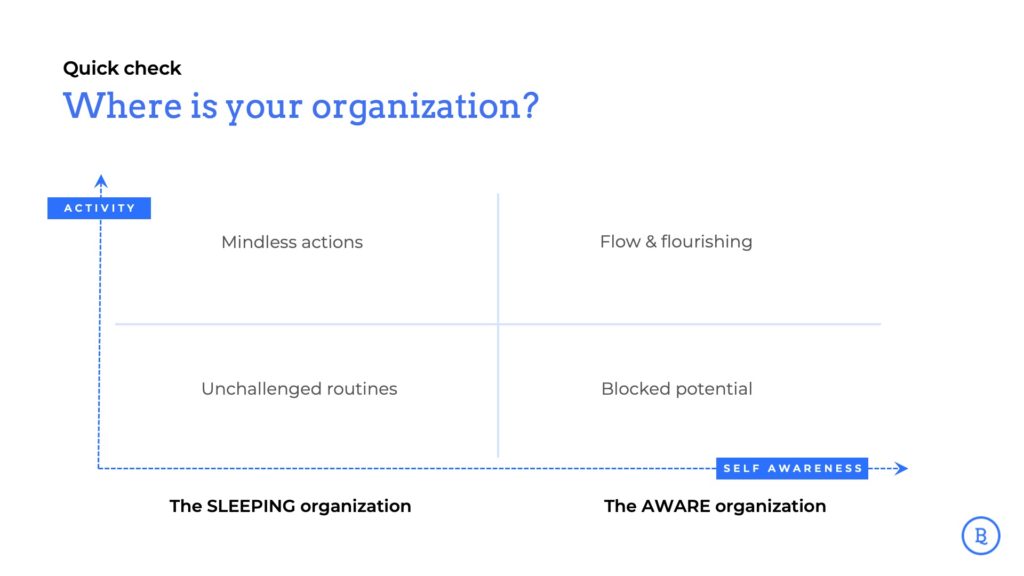
The goal is to make mindful actions and changes based on genuine self-(er)knowledge. This leads to the flourishing and flow of each individual and is thus the basis for the flourishing of teams and entire organizations.
Three traps for organizations
Trap 1: “Everything as usual” (little self-awareness, few actions)
In this state, organizations do not promote self-(awareness), nor are purposeful actions taken to improve the status quo. The daily routine runs on autopilot and is not questioned.
Trap 2: Fallacies and actionism (little self-awareness, many actions)
If organizations act without strong self-(awareness) of individuals, they can be found in this field. Decisions based on individual guesswork (“psychological guesswork”) are the order of the day. Sometimes people want to change, but they do not do so purposefully because they do not know the people well enough.
Trap 3: Blocked human potential (high self-awareness, few actions)
Organizations in this field basically promote the self-(awareness) of their employees. However, this is often the first time that managers and high potentials are promoted. If there is no targeted and consistent use of the knowledge, the potential can never be fully utilized in the organization.
The way out of the traps
BLUQUIST offers organizations a way out of the traps. The way out is always the same: First, each employee can get to know themselves better through personal assessments on our platform. This then enables targeted and sustainable development. On a team and organizational level, it also enables a high fit of people to roles, teams and challenges.
Curious? Start today and get in touch with us: www.bluquist.com


